Table of Contents
The advent of digital technology has revolutionized various sectors, and healthcare stands as one of the most significant beneficiaries of this transformation. Among the numerous digital innovations, healthcare app development has emerged as a critical component in modern healthcare delivery systems.
Healthcare apps have become increasingly significant, owing to their potential to enhance patient care, streamline healthcare processes, and improve accessibility to health services. They serve as a bridge between healthcare providers and patients, fostering effective communication, efficient service delivery, and timely care.
From scheduling appointments to real-time health monitoring and integration of electronic health records, healthcare apps have reshaped the way healthcare services are delivered and received. Moreover, with the increasing focus on personalized care, these apps are set to play an even more crucial role in the future of healthcare.
However, developing a healthcare app is no small task. It involves careful consideration of various factors such as data security, user experience, interoperability, and compliance with healthcare regulations. This guide aims to provide an in-depth understanding of healthcare app development, discussing its importance, key features, security considerations, challenges, and future trends.
As we delve into the world of healthcare app development, it is essential to remember that the ultimate goal is to create a tool that enhances the quality of healthcare services and improves patient outcomes.
Importance of Healthcare Apps
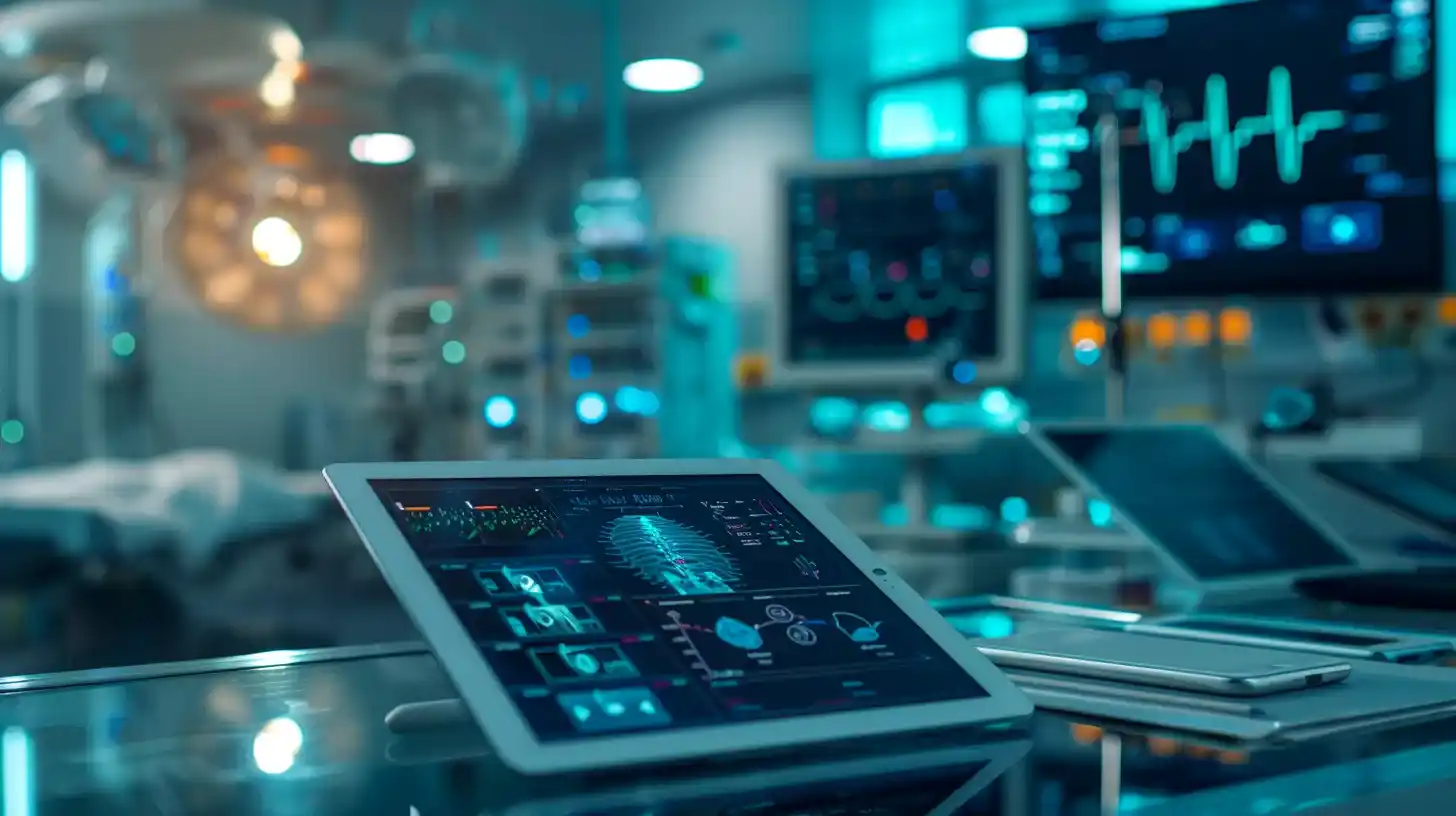
Healthcare apps have revolutionized the way medical services are delivered and received. They play a significant role in the healthcare industry, providing numerous benefits to both patients and healthcare providers.
Enhancing Patient Care and Engagement
Healthcare apps are instrumental in enhancing patient care and engagement. They provide patients with a platform to interact with their healthcare providers, seek medical advice, and monitor their health conditions. Through these apps, patients can receive personalized care, which significantly improves their health outcomes. Moreover, healthcare apps allow patients to actively participate in their healthcare journey, fostering a sense of ownership and accountability for their health.
Improving Healthcare Accessibility and Convenience
Another major benefit of healthcare apps is that they improve healthcare accessibility and convenience. With the advent of these apps, patients no longer need to travel long distances or wait in long queues to receive medical services. They can access healthcare services right from the comfort of their homes, at any time of the day. This is particularly beneficial for patients living in remote areas, the elderly, and those with mobility issues.
Streamlining Healthcare Processes for Providers
Healthcare apps also streamline healthcare processes for providers. They automate various administrative tasks such as appointment scheduling, patient registration, and billing, freeing up healthcare providers to focus more on patient care. Furthermore, healthcare apps provide a centralized platform for storing and managing patient data, making it easier for healthcare providers to track patient progress, make informed decisions, and deliver timely and efficient care.
Key Features in Healthcare App Development
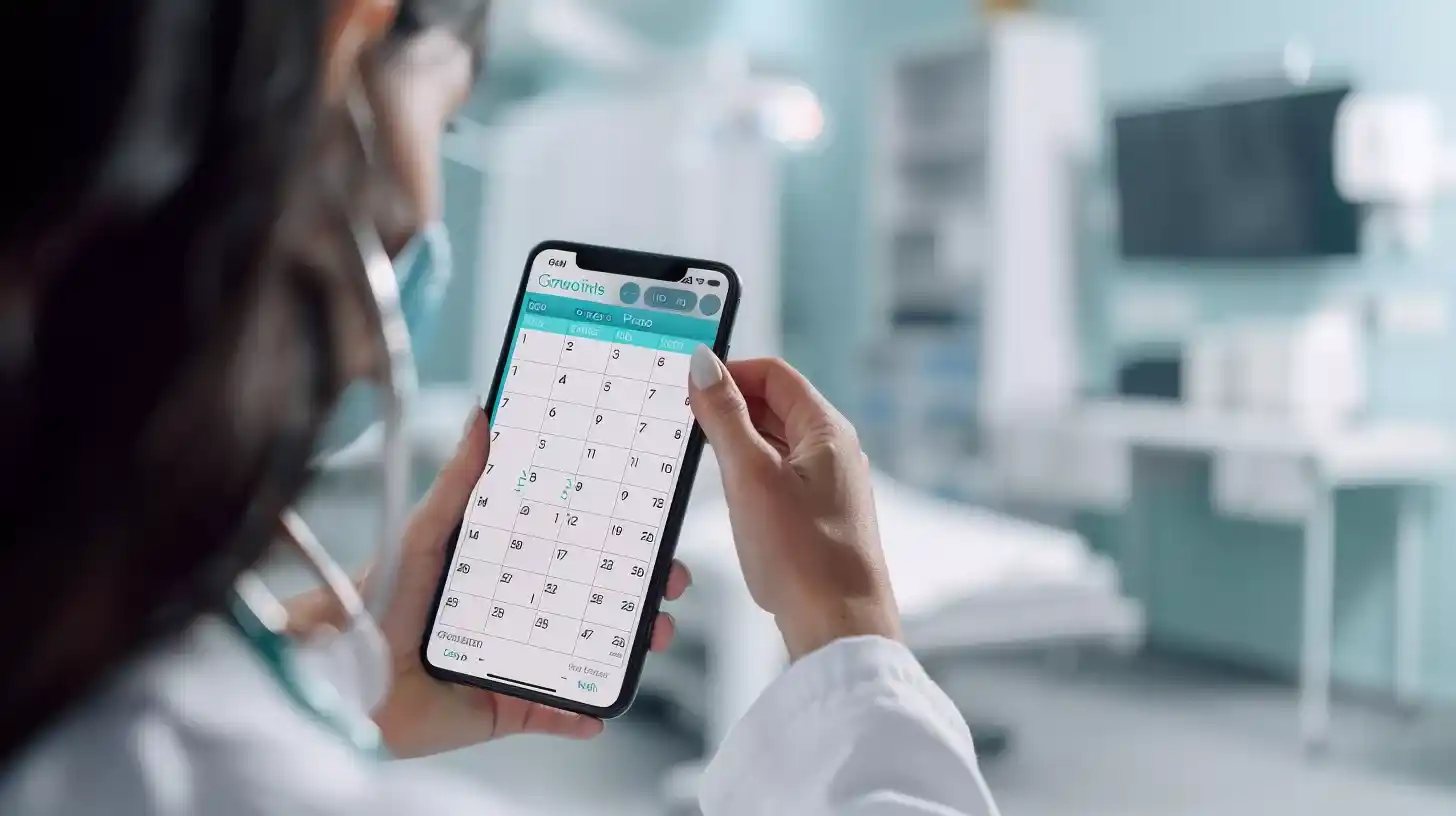
When it comes to developing a healthcare app, certain features are essential to ensure the app’s success and its usefulness for both healthcare providers and patients. Here are some of the key features that should be integrated into healthcare app development:
Telemedicine Capabilities
In the modern world, where convenience is highly valued, the ability to consult with healthcare professionals remotely is a must-have feature. Telemedicine capabilities allow patients to receive medical advice, diagnosis, and treatment from the comfort of their own homes. This feature not only enhances accessibility but also reduces the risk of disease transmission, especially in times of global health crises.
Appointment Scheduling and Reminders
A well-designed healthcare app should also facilitate the scheduling of appointments. It should allow users to view available time slots, book appointments, and receive reminders for upcoming ones. This feature can significantly improve patient engagement and adherence to treatment plans, leading to better health outcomes.
Electronic Health Records Integration
Integration with electronic health records (EHRs) is another critical feature of healthcare apps. EHRs contain comprehensive patient information, including medical history, diagnoses, medications, treatment plans, immunization dates, allergies, radiology images, and laboratory test results. By integrating with EHRs, healthcare apps can provide healthcare providers with easy access to patient information, enabling them to make informed medical decisions.
Real-Time Health Monitoring
Lastly, real-time health monitoring is a feature that can significantly enhance the effectiveness of healthcare apps. This feature enables the continuous tracking of various health parameters, such as heart rate, blood pressure, glucose levels, and sleep patterns. The data collected can be used by healthcare providers to monitor a patient’s health status in real-time, allowing for timely interventions and personalized care.
Security Considerations in Healthcare App Development
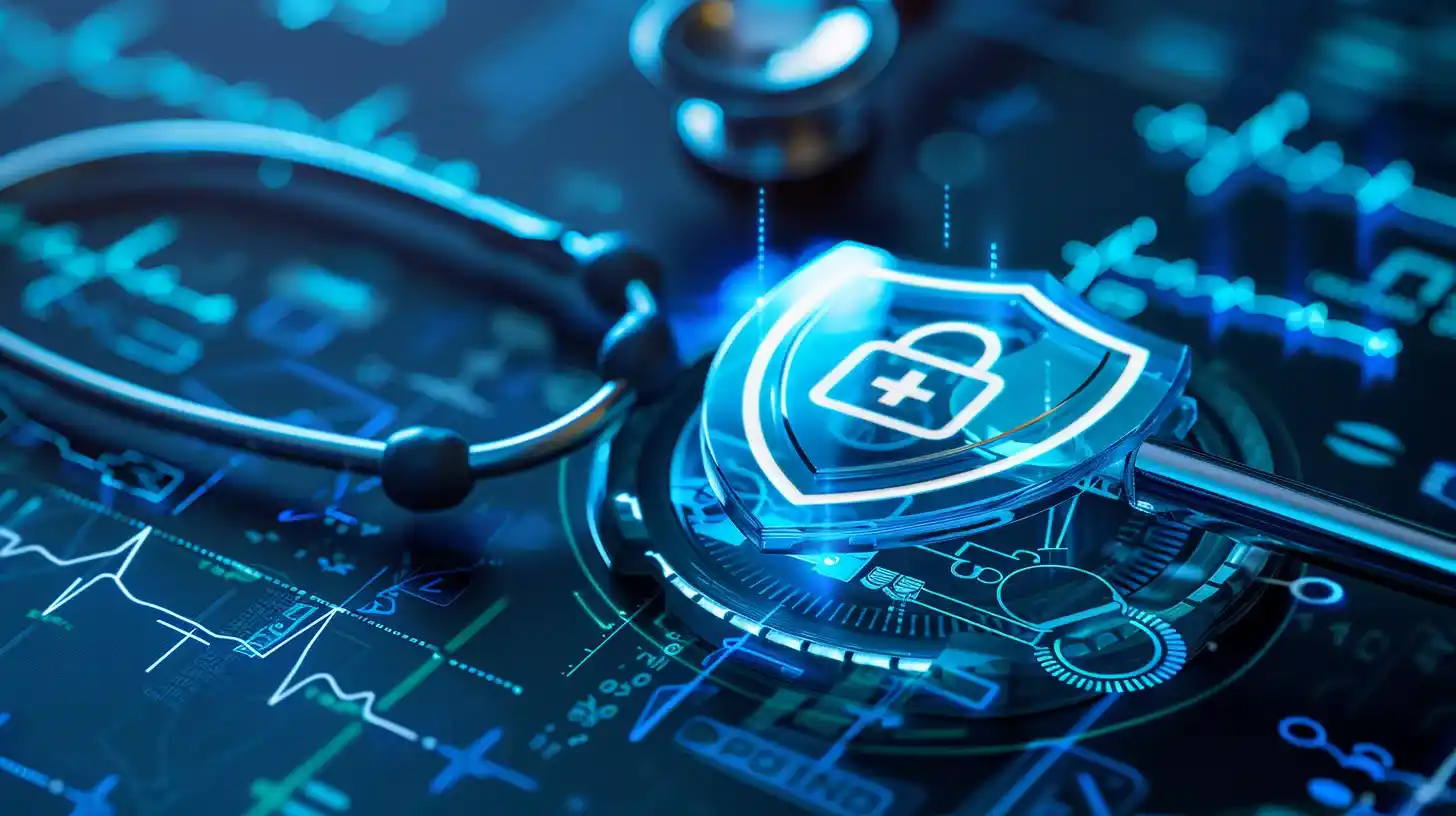
The development of healthcare apps involves handling sensitive patient data, which necessitates stringent security measures. The implications of a security breach in this context are severe, leading to potential legal ramifications and a loss of trust from patients and healthcare providers. Consequently, healthcare app developers must prioritize the following security aspects:
Data Encryption and Protection
The cornerstone of any secure healthcare app is robust data encryption and protection. Healthcare apps often handle sensitive patient data, including personal identification information, medical history, and treatment plans. This data must be encrypted both at rest and in transit to prevent unauthorized access. Additionally, developers should consider implementing advanced encryption algorithms and secure coding techniques to enhance the protection of patient data.
Compliance with Healthcare Regulations
Healthcare app developers must ensure their applications comply with all relevant healthcare regulations. In the United States, for instance, this includes the Health Insurance Portability and Accountability Act (HIPAA). HIPAA sets the standard for protecting sensitive patient data, and any healthcare app that deals with protected health information (PHI) must ensure they meet HIPAA requirements. Achieving HIPAA certification can help demonstrate compliance with these stringent standards. Non-compliance can lead to severe penalties, so it’s crucial to understand and adhere to these regulations.
Secure User Authentication Methods
To further safeguard patient data, healthcare apps should employ secure user authentication methods. This can include multi-factor authentication, biometric authentication, or other advanced security measures. These methods ensure that only authorized individuals can access the data, thus preventing unauthorized access. It’s also advisable to implement a robust password policy and educate users about the importance of strong, unique passwords.
In conclusion, security is paramount in healthcare app development. By incorporating robust data encryption, adhering to healthcare regulations, and implementing secure user authentication methods, developers can build secure healthcare apps that patients and providers can trust.
Challenges in Healthcare App Development
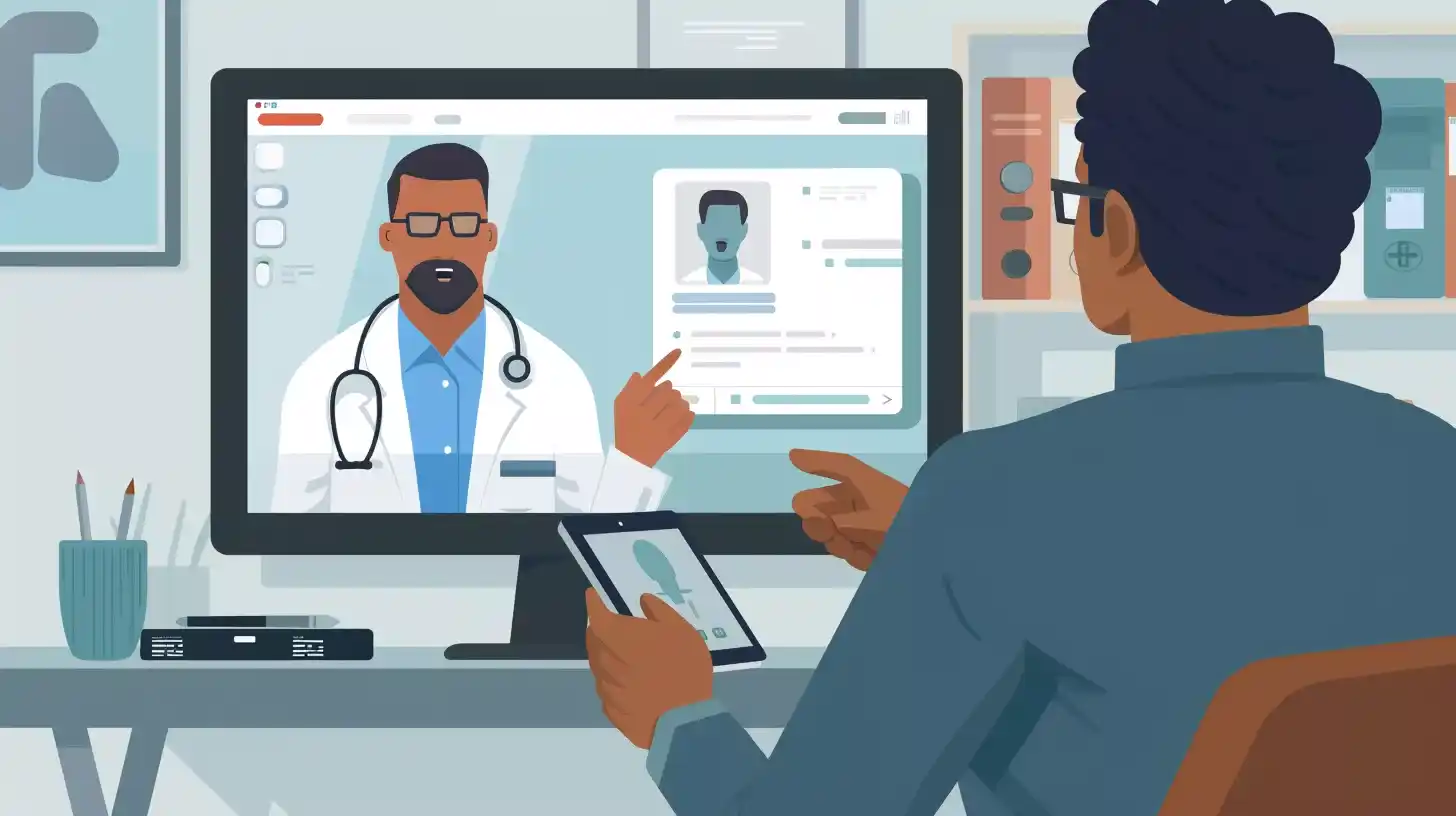
Developing a healthcare app is not without its challenges. While these applications hold the potential to transform the healthcare industry, developers must navigate a complex landscape of considerations to ensure their apps are both effective and compliant. Here are some of the top challenges in healthcare app development:
Ensuring Data Privacy and Confidentiality
One of the most significant challenges in healthcare app development is ensuring data privacy and confidentiality. Healthcare apps often handle sensitive patient information, including personal details, medical histories, and treatment plans. This data must be securely stored and transmitted to prevent unauthorized access, which could lead to breaches of patient confidentiality and significant legal repercussions.
Achieving Interoperability with Existing Healthcare Systems
Another key challenge is achieving interoperability with existing healthcare systems. For a healthcare app to be truly effective, it needs to seamlessly integrate with a range of other systems, from electronic health record (EHR) platforms to billing software. However, these systems often use different data standards and protocols, making it difficult to ensure smooth data exchange and integration.
Managing Scalability and Performance Issues
Finally, healthcare apps must be able to manage scalability and performance issues. As the user base of a healthcare app grows, the app must be able to handle an increasing volume of data and transactions without performance degradation. This requires careful planning and robust infrastructure from the outset of the app development process. Furthermore, the app should be designed with the potential for future growth and expansion in mind, to accommodate new features and functionalities as they become necessary.
Future Trends in Healthcare App Development
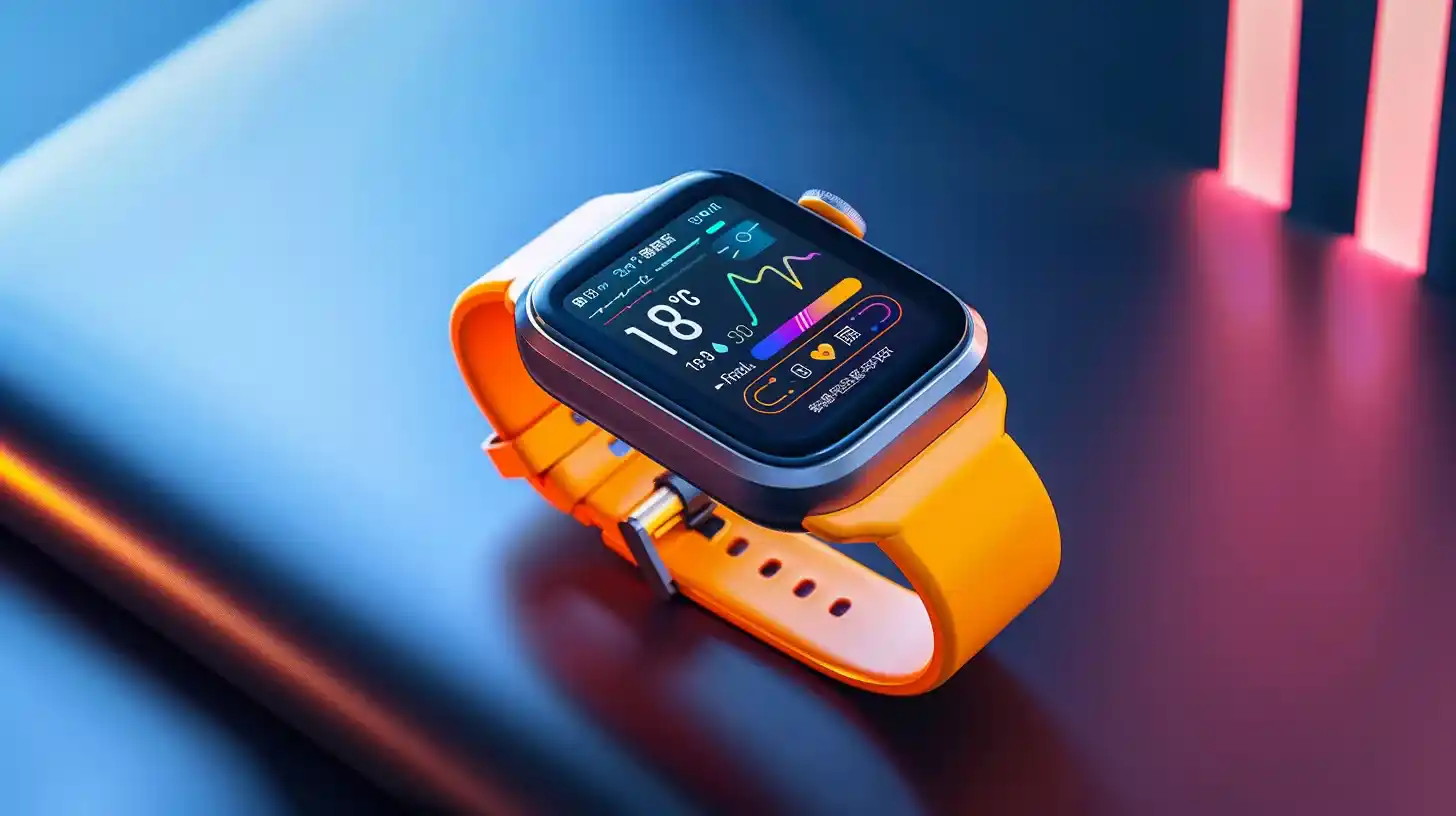
As we look towards the future, several emerging trends are set to revolutionize the landscape of healthcare app development. These advancements are not only enhancing the capabilities of healthcare apps but are also pushing the boundaries of what is possible in the realm of digital health.
Integration of AI and Machine Learning for Predictive Analytics
Artificial Intelligence (AI) and Machine Learning (ML) are two technological advancements that are making significant strides in the healthcare industry. They are being integrated into healthcare apps to provide predictive analytics, a tool that can forecast potential health issues based on the user’s health data. This enables healthcare providers to take proactive measures, thereby improving patient outcomes.
Predictive analytics can also be used to identify trends and patterns in large datasets, which can provide valuable insights into population health. This can aid in the planning and implementation of public health initiatives and policies. Moreover, AI and ML can automate routine tasks, freeing up healthcare professionals to focus more on patient care.
Rise of Wearables and IoT in Healthcare Apps
The Internet of Things (IoT) and wearable technology are other trends that are significantly impacting healthcare app development. Wearable devices such as smartwatches, fitness trackers, and health monitors can collect real-time health data, which can be synced with healthcare apps. This provides users and healthcare providers with continuous health monitoring, which can be crucial in managing chronic illnesses and preventing health complications.
IoT devices, on the other hand, can connect various healthcare systems and devices, enabling seamless data exchange. This can improve the efficiency of healthcare processes and enhance patient care. Furthermore, the data collected from these devices can be used to provide personalized health recommendations, fostering a more proactive approach to health management.
Personalized Medicine through Data-Driven Insights
One of the most promising trends in healthcare app development is the shift towards personalized medicine. This approach tailors medical treatment to the individual characteristics of each patient, which is made possible through the analysis of large amounts of health data.
Healthcare apps can collect and analyze this data to provide personalized health recommendations and treatments. This can improve treatment effectiveness and patient satisfaction. Moreover, it can also empower patients to take an active role in their health management, leading to improved health outcomes.
In conclusion, the future of healthcare app development holds immense potential. With the integration of AI and ML, the rise of wearables and IoT, and the shift towards personalized medicine, we can expect to see healthcare apps playing an increasingly crucial role in transforming the healthcare industry.
Conclusion
In the rapidly evolving landscape of healthcare, the development of healthcare apps is becoming increasingly significant. Through this guide, we have explored various facets of healthcare app development, from its importance to its challenges, and the future trends that are set to shape this domain.
We began by discussing the critical role that healthcare apps play in enhancing patient care and engagement, improving healthcare accessibility, and streamlining processes for providers. The key features of successful healthcare apps, such as telemedicine capabilities, appointment scheduling, EHR integration, and real-time health monitoring, were also outlined.
We also delved into the security considerations inherent in healthcare app development, noting the importance of data encryption, compliance with healthcare regulations like HIPAA, and secure user authentication methods. The challenges in healthcare app development, including ensuring data privacy, achieving interoperability, and managing scalability, were also highlighted.
Looking towards the future, we discussed the integration of AI and machine learning for predictive analytics, the rise of wearables and IoT in healthcare apps, and the potential for personalized medicine through data-driven insights.
As we conclude, it is clear that healthcare apps are not just a trend, but a critical component in the transformation of the healthcare industry. They are redefining how healthcare is delivered and experienced, making it more patient-centric, accessible, and efficient. As technology continues to advance, healthcare app development will undoubtedly continue to play a pivotal role in shaping the future of healthcare.